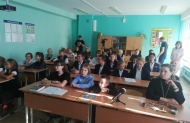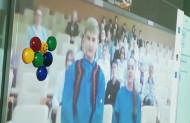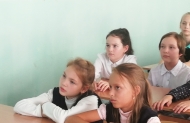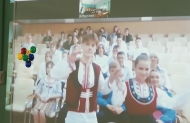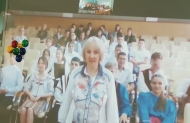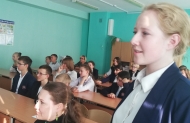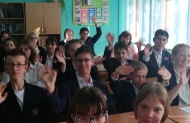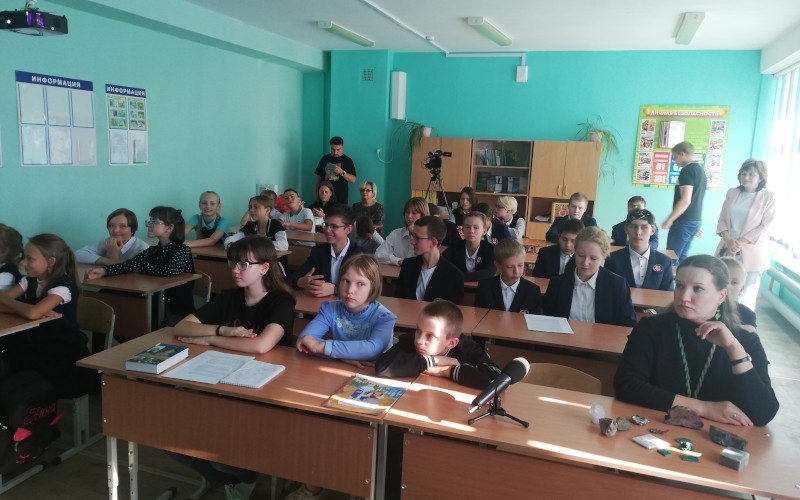
Participants of the project “On the Way of AzBuka” schoolchildren from the city of Polevskoy, Sverdlovsk region (Russia) and the city of Comrat, the capital of the ATU Gagauzia (Republic of Moldova), discussed why the Russian language is the language of peace and why it is necessary to take care of native languages.
This is the second teleconference this year, organized by the “Idea” Social Activity Foundation and the Representative Office of the Eurasian Peoples' Assembly in the Sverdlovsk Region (Russia) under the support of the Ministry of Education of the Sverdlovsk Region and the Ministry of International and Foreign Economic Relations of the Sverdlovsk Region.
The first one, with the city of Tursuzade (Tajikistan), opened a series of teleconferences (there will be four in total). During these conferences children talk about their cities and educational institutions, show national dances, play national instruments, and read texts in their native languages.
This time children from the Gavrila Gaidarzhi Theoretical Lyceum of the city of Comrat performed Bulgarian, Moldavian and Gagauz dances in traditional national costumes and greeted the Ural schoolchildren in these languages. In Gagauzia, children learn five languages at once, so the children from Polevskoy were interested to find out what role the Russian language plays in this linguistic diversity. It is worth noting that the Gagauz schoolchildren are fluent in Russian, what the participants of the teleconference were convinced of when they asked each other questions about school life, folk traditions and even dreams.
With the help of Natalya Gurkina, head of the historical museum of Polevskaya, children from secondary school No. 8 told about the main wealth of the Earth's interior - minerals. Polevskoy is famous for the fact that the entire cycle tales "Malachite Box" by Pavel Bazhov is geographically "registered" in Polevskoy and its environs. The Idea Foundation presented a fairy tale by Olga Belousova (Yekaterinburg, Russia) “About the Ural Frost, Magic Glass and Jeweled Desires”, which was translated into Moldovan with the participation of students from the Moscow State Linguistic University and will soon be published. In the meantime, the Urals have prepared information about the anniversary of the writer Dmitry Mamin-Sibiryak, who was the first to tell the world about the special Ural character, strong and talented people.
According to Larisa Boikova, chief specialist of the Department of Education of ATU Gagauzia, Gagauz schoolchildren were inspired by the meeting and offered to meet again. Alena Deli, the teacher of the Russian language and literature of the Theoretical Lyceum, summing up the meeting, noted that it is important for them to communicate in Russian as a way to preserve national identity:
“Today we have established a spiritual connection with you. I think that everyone will support our idea of holding a Russian language lesson together.”
According to the Deputy Minister of International and Foreign Economic Relations of the Sverdlovsk Region, Lyudmila Berg, the creation of a language environment with the equal presence of native languages in it makes it possible to strengthen the basic humanitarian values and the identity of peoples. At the same time, the Russian language remains the language of interethnic communication, peace and mutual understanding, creating an opportunity for cooperation and interaction. Such teleconferences help children create their own model of communication, where everyone speaks the same language - the language of peace and friendship.
Elmira Samokhina, Head of the Representative Office of the Eurasian Peoples' Assembly in the Sverdlovsk Region (Russia)



